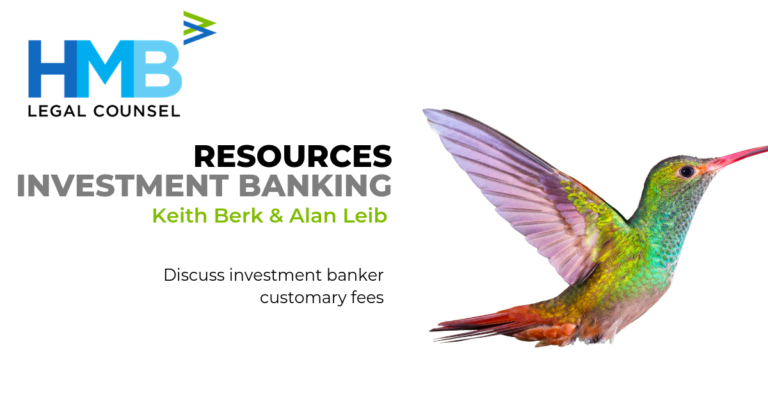In our previous two articles we walked you through the reasons to hire an investment banker for the sale of your middle market business (i.e. transaction valued between $25 million and $250 million) as well as typical terms for how the relationship will work. Now your attention turns to fees.
Our experience is that terms vary among investment banking firms but industry norms have been established and the negotiation of terms is generally not difficult. Fees are a totally different issue. We have tracked fees for every deal we have done for the last 12 years. Fees charged by investment banking firms for these transactions have varied greatly based on the size, expertise and reputation of investment banking firm, the current market, the value of the business, the goals of the business owner, etc. Although we have found some industry "fee" norms, the structuring of the fee portion of an investment banking agreement should be scrutinized and negotiated to align interests, to be fair to the business owner and, of significant importance, to motivate the investment banker.
FEES
Fee arrangements generally involve two components–a non-refundable retainer and a success fee based upon the amount of value received by the seller. For middle market deals, non-refundable retainers fall in the range of $25,000 to $100,000, with $50,000 or $75,000 being the typical retainer. Most investment bankers will agree that the retainer is fully creditable against any success fee earned upon closing.
Most fee structures are based on a percentage of total value received, have a minimum fee (on the lower side of the middle market) regardless of value received and have an increasing fee percentage based on the sale process resulting in a value greater than agreed upon hurdles. Middle market deals classically provide for minimum success fees in the range of $250,000 to $750,000, with most minimums falling on the low side of this range.
Success fees are usually based on the total value of a business and almost always are based on the value paid by the buyer not the proceeds realized by the seller. This has numerous implications. If a business has a value of $25M and has $10M of interest bearing debt outstanding (i.e. bank debt), and the banking fee is 4% of deal value, the banker will receive a fee of $1M (4% of $25M), not $600,000 (4% of the $15M the seller will realize after paying bank debt). Further, if the seller sells only 70% of his ownership interest in his business, the fee remains $1M (4% of $25M) even though the Seller may receive proceeds as low as $10.5M (70% x $25M – $10M).
We typically see success fees in a very competitive market starting as low as .75% for deals at the highest end of the middle market and as high as 5% at the lowest end of the middle market. Prominent middle market investment bankers with “real” industry expertise target success fees of at least $1,000,000 per transaction.
FEE STRUCTURE
The art of structuring the success fee is to motivate the banker to achieve maximum value. To do so, it has become commonplace over the past decade or so to provide the investment banker with a greater success fee for achieving a value above pre-set hurdles. For example, if a 5 multiple of a $20M EBITDA business would result in a $100M value, a well structured fee might provide for a 1.25% fee on the first $100M of value, a 1.5% fee on value between $101M and $120M, a 2% fee on value between $121M and $140M and a 5% fee on value above $140M.
A seller should carefully consider what is included in “value.” Many components are obvious. The seller’s receipt of cash, stock, notes, etc. for the assets or ownership interest in a business is value received by the seller. But there are many items that should be excluded from value such as compensation for services rendered as an employee of the buyer and fair market lease payments for real estate or equipment leased by the seller or its affiliates to the buyer.
One of the more highly negotiated issues is when the investment-banking fee is paid. The first draft of every investment banking agreement will call for the fee to be paid in full at closing. If the business is sold for cash, that is a fair term. But the more typical sale will have one or more components of deferred value such as a promissory note, cash deposited in an indemnity escrow, or a working capital adjustment. We believe the investment banker should be paid when the seller receives cash. This is not a popular view with investment bankers and often leads to a significant negotiation. We believe paying the investment banker when the seller receives cash aligns the seller’s and investment banker’s interests, keeps the investment banker on the seller’s side while there is an escrow or note outstanding and generally (but grudgingly) investment bankers will agree to this term.
CONCLUSION
Investment bankers are likely to increase the value of a middle market business. Although we highly recommend retaining an investment banker, be careful. Investment banking agreements are complex and involve significant amounts of money. These agreements need to be thought through to align the interests of the parties and clearly identify the expected deliverables.




